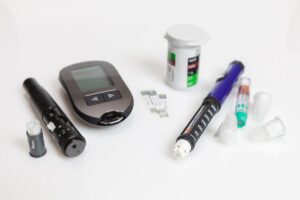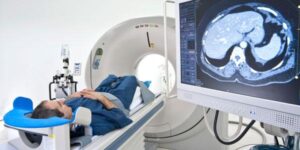Last Updated on October 23, 2023 by Kevin Chen
Medicine is one field that has been greatly impacted by the evolution of integrated circuit chips.
Many medical devices, whether big or small, depend on the IC chips to run.
And it is not just about running, IC chips improve the effectiveness and efficiency of the medical devices.
From small implantable medical devices to large scanners, the presence of integrated circuits is literally everywhere.
The chips are used for a wide range of functions in medical devices. Most of them are used for monitoring purposes while others used for research purposes among many other uses.
Keep reading as we discuss the key applications of IC chips in medical devices.
Integrated circuits in implantable medical devices
Implantable medical devices have been around for quite long, and they will still remain to be important in the field of medicine.
These devices come in different forms and are used different functions.
The most common implantable medical devices include pacemakers, neurostimulators, cochlear implants, cardiac implants, intraocular lenses among others.
Integrated circuits are the the main functional units for the implantable devices. They determine and control every action of the devices depending on the function of the device.
Some chips in the implantable devices control the functionality of a patients body.A pacemaker is a perfect example of such device. Its main function is to regulate the heartbeat. IC chips in the pacemaker generate electric impulses that will regulate the heartbeat.
Similarly, IC chips in neurostimulators generate the stimulation that will be necessary in relieving a patient’s pain.
Other implantable medical devices such defibrillators utilize IC chips to execute their working mechanisms.
The accuracy of these implantable medical devices will always depend on the types and efficiency of IC chips used.
With the fast advancement of IC technology, we expect to see the development and invention of more implantable medical devices in the market.
IC chips in drug delivery systems and devices
Image source: Research Dive
This is another common application of IC chips in medical devices. Here you only need to think of electric devices that are used for delivering drugs into the body. Some of these devices are automated while others may require input from users. But one common characteristic that they share is the reliance on IC chips.
Examples of drug delivery devices that rely on IC chips include insulin pumps, autoinjectors, infusion pumps, electric eyedroppers among others.
As the name suggests, the main function of these drug delivery devices is to transfer drugs straight into the target body parts where they will perform their healing functions.
These devices differ in the way they work depending on the kind of medication that they deliver and the nature of the body part that is they treat. For example, a delivery system for nasal will be different from the insulin pumps.
One function of the IC chips in drug delivery systems is to regulate the volume of drug being delivered. This ensures that a patient gets the correct dosage as prescribed by a doctor.
IC chips also determine the time and periods for the drug delivery. Some of these devices are programmed to deliver the medication at specific periods. In some cases, users are allowed to choose their prescribed timing by feeding the necessary data to the drug delivery devices.
The convenience of drug delivery systems is unmatched. They make it easy for patients to get drugs without straining. They are also accurate by ensuring that only a correct dosage of drug is administered.
In overall, drug delivery systems and devices improve the the medical care, and all this is possible thanks to the IC chips.
IC chips in medical imaging
Image source Center for disease, control and prevention
Away from the small medical devices, large equipment, IC chips are also used in large medical machines and equipment. One such application area is the medical imaging. Here, there are numerous imaging devices that have IC chips.
Medical imaging equipment use different techniques to generate quality images of the internal body parts. These images are then scanned and read by health professionals for accurate diagnosis of a health condition
Examples of medical equipment that heavily rely on IC chips include computed Tomography (CT) fluoroscopy, Radiography, Mammography, dental Cone-beam Computed Tomography, Magnetic Resonance Imaging (MRI) among other devices.
Medical imaging devices have different chips that execute different functions.
The high-quality images that these devices produce is mainly because of using high-spec chips which have fast and powerful image processing features.
Let’s take an example of the MRI machines. They use a combination of magnetic and electrical properties to generate images of internal body organs. The microchips in MRI control every aspect of image production starting from the generation of the MRI signals to the timing of the waves.
The same applies to the CT scanners where integrated circuits feature everywhere in the machine.
Blood glucose monitor
Medical conditions such as Type 2 diabetes require constant monitoring of the blood sugar level.This is where the essence of blood glucose monitors come in. They are able to tell the level of sugar in blood. Users can then use information from these device to take necessary steps.
All the operations and functionalities of glucose sugar monitors are possible because of the IC chips.
A glucometer is one perfect example of medical devices that use integrated circuit chips to monitor the blood sugar level.
Both the standard and continuous glucometers depend on the IC chips to deliver accurate values when monitoring blood sugar level.
IC chips in telemedicine devices
Telemedicine simply refers to the interaction between patients and healthcare providers over the internet with the help of various devices.
These interactions come in different forms including video calls, text messages, or any other form of communication.
The fact that the interactions are centered around the topic of medicine and health qualifies it to be among the applications of IC chips.
All telemedicine devices are electric-based hence rely on the microchips to function well.
Whether it is a computer, camera, audio system or video system, IC chips must be present.
The field of telemedicine has witnessed major advancement such that the devices are now capable of doing complex diagnosis remotely.
Some of these devices are equipped with tools and sensors that can monitor a patient’s health and send data to the health caregiver remotely.
Telemedicine IC chips became quite popular during the 2020 Corona Virus pandemic as they made it easier to treat patients without having to travel to health facilities
IC chips in portable medical aid devices
Most electric medical aid devices are able to work the way they are supposed because they have integrated circuit chips.
The chips not only improve the functionality of the medical aids but also ensure that they are accurate.
Medical aid devices are mainly used by people with various forms of impairments. Some challenges can be physical while others are cognitive.
Example of medical aid devices include hearing aids, electric mobility aids, heating pads,visual aids, respiratory aids among others.
What are the functions of IC chips in medical devices?
We have discussed different medical devices and how they work because they have integrated circuits.
Sensing
In the world of electronics, we can view this as a data collection functionality. Medical devices are design to sense or collect information about a particular condition of the body so that they can trigger necessary action. Integrated circuit chips with the sensing feature come in handy whenever there is need to sense
There are different types of sensors that are embedded in medical devices. They include temperature sensors, pressure sensors, pulse sensors.
Cummunication
Integrated circuits are the backbone of communication, whether it is between a device and other device or the device and users.
Take an example of the telemedicine application of medical devices. There must be a mode of communication between the patient and the doctor. IC chips for such applications are programmed to use various networking and communication protocols.
Implantable devices also have dedicated features of relaying data.
Power management
All the medical devices we have discussed are powered by electricity. Components of the IC chips are responsible for managing power in these devices. For example, a component such as capacitors and resistors play different roles when it comes to managing power in the device.
Conclusion
From the list of medical devices and equipment that we have discussed about in this guide, it is clear IC chips have made a significant impact in the medical world. And they will continue doing so since IC manufacturers are continuously working on producing better chips.
The chips ensure that the devices are able to operate accurately and while at the same time improve the general performance of the devices.
Are you a manufacturer planning to invest into medical devices? Or, are you working on projects that are related to building medical devices. You should consider getting the right IC chips for your devices.
Consider buying IC chips in bulk from the best suppliers and wholesalers. This way, you can be sure of getting smooth performance from your medical devices.
If you want to find more Electronic Components Distributors, please check out the following articles:
Electronic Components Distributors In the USA
Electronic Components Distributors In UK
Electronic Components Distributors In China
Electronic Components Distributors In India
Electronic Components Distributors In Singapore
Electronic Components Distributors In Malaysia
Electronic Components Distributors In Vietnam
Electronic Components Distributors In South Korea
- The Ultimate Guide to IRFZ44N MOSFET - April 30, 2024
- AMD Ryzen 5 vs Intel i5: How to Choose the Right Processor? - April 30, 2024
- Where to buy IC chips? The Best Guide? - March 26, 2024






